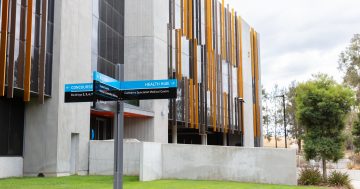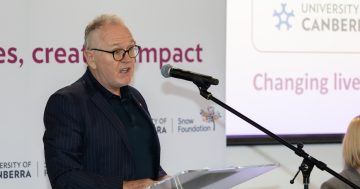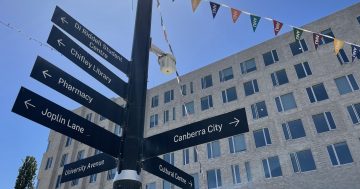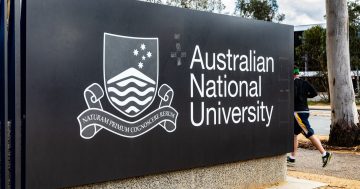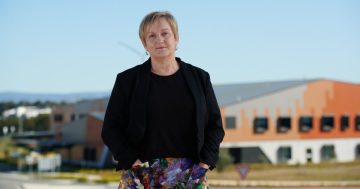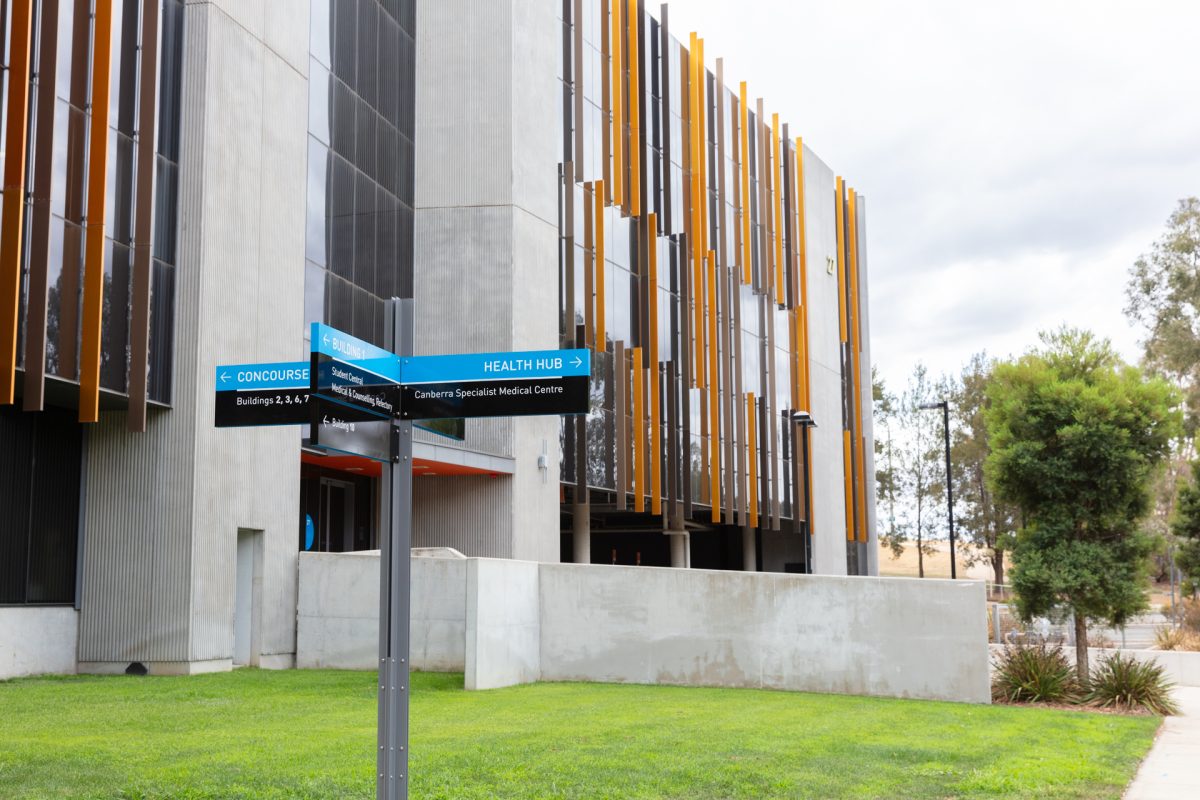
The University of Canberra will offer fewer courses with fewer staff. Photo: Michelle Kroll.
The University of Canberra will axe dozens of courses and 52 academic positions in proposals for a reduced but more streamlined offering as part of its plan to rein in spending and get its finances in order.
Its organisational change documents show all five faculties will be affected but Arts and Design, Health and Business, Government and Law will bear the brunt of the cost-cutting designed to take $50 million out of the university’s recurrent spending and get its budget back into balance by the end of the year.
In Arts and Design 13 undergraduate degree programs will go, with many of these to become majors in single entry point degrees, including Arts, Communications and Built Environment (architecture) degrees.
These and seven other programs have either been suspended or closed in the last year or will be closed in 2025.
Across the faculty, the net loss will be 13 positions.
The change documents say student numbers in the Faculty of Arts and Design have slumped since 2019.
In the School of Arts and Communication, the full time student load fell by 32 per cent between 2019 and 2024 while staff grew by six per cent.
In the School of Design and Built Environment, enrolments have been flat since 2019, but staff numbers are up 38 per cent.
In Health, no degree programs will be lost but eight programs where enrolments have been low will no longer be offered, with the loss of 17 positions.
The Business, Government and Law Faculty will lose four undergraduate degrees, two undergraduate programs and 13 staff.
In the Canberra Business School, four degrees will shrink to just one, reflecting declining enrolments, while the offering in the School of Politics, Economics, Society will be halved to just one program.
Areas to be affected in Business include Events and Tourism Management, Accounting, Entrepreneurship, Urban Planning, Entrepreneurship and Banking, while in Politics, Economics, Society, it will be the areas of Sociology, Political theory, Socio-economic Modelling, Applied Economics and National Security and International Relations.
Law will only lose two research staff but electives will be consolidated, resulting in fewer units taught.
The Science and Technology Faculty will lose six positions, four through a spill-and-fill process.
In the School of Science, two of the four capability groups will be axed and two new capability groups formed, Foundation Science and Biomedical Science.
Nine positions are proposed to be cut in the School of Education.
The university had announced that up to 250 staff overall could lose their jobs. It has already identified 141 non-academic positions and is in the process of implementing those job cuts.
A UC spokesperson said there would be little or no impact for continuing students who would be able to complete their degrees.
“Courses identified for closure have not been open for applications and we have not made or accepted offers into these courses,” the spokesperson said.
Decisions to close courses were made following a review of student demand and in some cases industry feedback.
“In most cases, the courses had low enrolments for at least the past three years so UC does not expect to lose student load as an outcome of this process,” the spokesperson said.
“In 2024, we introduced 20 new or revised online courses in response to market analysis.”
The spokesperson said UC was taking all necessary measures to prioritise student experience and provide high-quality education and opportunities.
But National Tertiary Education Union ACT division secretary Lachlan Clohesy said the changes would damage UC, and students would feel the impacts through bigger class sizes.
Dr Clohesy said many individual subjects would be cut, but the details of that were not in the change documents.
“So you have big class sizes, you get less opportunity for consultation, less feedback on assessments, so it does have an impact on the student,” he said.
But the public should not lose sight of the root cause of UC’s predicament, which was poor governance, he said.
“A lot of that is at the feet of [former vice-chancellor] Paddy Nixon, and we’re dealing with a lot of the consequences of that,” Dr Clohesy said.
“We can’t come out of this without addressing university governance.
“A lot of staff have the view that it’s not great we’re in this position, but let’s use this opportunity to make sure that we’re never put in this position again.”
New Vice-Chancellor Bill Shorten is due to arrive for the start of the semester in February.
Dr Clohesy said staff were optimistic that Mr Shorten would right the ship but “the proof will be in the pudding”.
He said Mr Shorten’s comments about forging a greater relationship with the Australian Public Service and specifically focusing on Canberra and the region were welcome.
However, he was likely to face more oversight and scrutiny from the UC Council in the wake of the university’s financial troubles.
Staff consultation on the change proposals closes on Friday 24 January.












